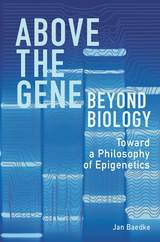
Above the Gene, Beyond Biology explores how biologists in this booming field investigate and explain living systems. Jan Baedke offers the first comprehensive philosophical discussion of epigenetic concepts, explanations, and methodologies so that we can better understand this “epigenetic turn” in the life sciences from a philosophical perspective.
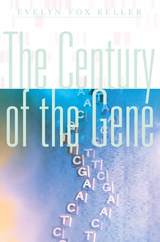
In a book that promises to change the way we think and talk about genes and genetic determinism, Evelyn Fox Keller, one of our most gifted historians and philosophers of science, provides a powerful, profound analysis of the achievements of genetics and molecular biology in the twentieth century, the century of the gene. Not just a chronicle of biology’s progress from gene to genome in one hundred years, The Century of the Gene also calls our attention to the surprising ways these advances challenge the familiar picture of the gene most of us still entertain.
Keller shows us that the very successes that have stirred our imagination have also radically undermined the primacy of the gene—word and object—as the core explanatory concept of heredity and development. She argues that we need a new vocabulary that includes concepts such as robustness, fidelity, and evolvability. But more than a new vocabulary, a new awareness is absolutely crucial: that understanding the components of a system (be they individual genes, proteins, or even molecules) may tell us little about the interactions among these components.
With the Human Genome Project nearing its first and most publicized goal, biologists are coming to realize that they have reached not the end of biology but the beginning of a new era. Indeed, Keller predicts that in the new century we will witness another Cambrian era, this time in new forms of biological thought rather than in new forms of biological life.
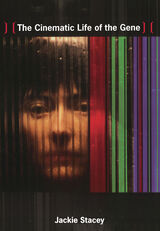
Stacey examines the body-horror movies Alien: Resurrection and Species in light of Jean Baudrillard’s apocalyptic proclamations about cloning and “the hell of the same,” and she considers the art-house thrillers Gattaca and Code 46 in relation to ideas about imitation, including feminist theories of masquerade, postcolonial conceptualizations of mimicry, and queer notions of impersonation. Turning to Teknolust and Genetic Admiration, independent films by feminist directors, she extends Walter Benjamin’s theory of aura to draw an analogy between the replication of biological information and the reproducibility of the art object. Stacey suggests new ways to think about those who are not what they appear to be, the problem of determining identity in a world of artificiality, and the loss of singularity amid unchecked replication.
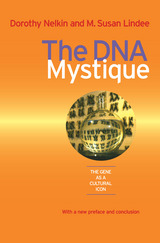
--In These Times
"Nelkin and Lindee are to be warmly congratulated for opening up this intriguing field [of genetics in popular culture] to further study."
--Nature
The DNA Mystique suggests that the gene in popular culture draws on scientific ideas but is not constrained by the technical definition of the gene as a section of DNA that codes for a protein. In highlighting DNA as it appears in soap operas, comic books, advertising, and other expressions of mass culture, the authors propose that these domains provide critical insights into science itself.
With a new introduction and conclusion, this edition will continue to be an engaging, accessible, and provocative text for the sociology, anthropology, and bioethics classroom, as well as stimulating reading for those generally interested in science and culture.
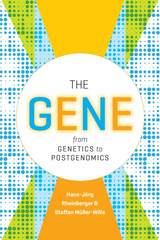
The time could not be better, therefore, for Hans-Jörg Rheinberger and Staffan Müller-Wille's magisterial history of the concept of the gene. Though the gene has long been the central organizing theme of biology, both conceptually and as an object of study, Rheinberger and Müller-Wille conclude that we have never even had a universally accepted, stable definition of it. Rather, the concept has been in continual flux—a state that, they contend, is typical of historically important and productive scientific concepts. It is that very openness to change and manipulation, the authors argue, that made it so useful: its very mutability enabled it to be useful while the technologies and approaches used to study and theorize about it changed dramatically.
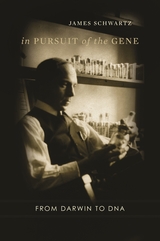
The mystery of inheritance has captivated thinkers since antiquity, and the unlocking of this mystery—the development of classical genetics—is one of humanity’s greatest achievements. This great scientific and human drama is the story told fully and for the first time in this book.
Acclaimed science writer James Schwartz presents the history of genetics through the eyes of a dozen or so central players, beginning with Charles Darwin and ending with Nobel laureate Hermann J. Muller. In tracing the emerging idea of the gene, Schwartz deconstructs many often-told stories that were meant to reflect glory on the participants and finds that the “official” version of discovery often hides a far more complex and illuminating narrative. The discovery of the structure of DNA and the more recent advances in genome science represent the culmination of one hundred years of concentrated inquiry into the nature of the gene. Schwartz’s multifaceted training as a mathematician, geneticist, and writer enables him to provide a remarkably lucid account of the development of the central ideas about heredity, and at the same time bring to life the brilliant and often eccentric individuals who shaped these ideas.
In the spirit of the late Stephen Jay Gould, this book offers a thoroughly engaging story about one of the oldest and most controversial fields of scientific inquiry. It offers readers the background they need to understand the latest findings in genetics and those still to come in the search for the genetic basis of complex diseases and traits.

One of our most brilliant evolutionary biologists, Richard Lewontin has also been a leading critic of those—scientists and non-scientists alike—who would misuse the science to which he has contributed so much. In The Triple Helix, Lewontin the scientist and Lewontin the critic come together to provide a concise, accessible account of what his work has taught him about biology and about its relevance to human affairs. In the process, he exposes some of the common and troubling misconceptions that misdirect and stall our understanding of biology and evolution.
The central message of this book is that we will never fully understand living things if we continue to think of genes, organisms, and environments as separate entities, each with its distinct role to play in the history and operation of organic processes. Here Lewontin shows that an organism is a unique consequence of both genes and environment, of both internal and external features. Rejecting the notion that genes determine the organism, which then adapts to the environment, he explains that organisms, influenced in their development by their circumstances, in turn create, modify, and choose the environment in which they live.
The Triple Helix is vintage Lewontin: brilliant, eloquent, passionate, and deeply critical. But it is neither a manifesto for a radical new methodology nor a brief for a new theory. It is instead a primer on the complexity of biological processes, a reminder to all of us that living things are never as simple as they may seem.
READERS
Browse our collection.
PUBLISHERS
See BiblioVault's publisher services.
STUDENT SERVICES
Files for college accessibility offices.
UChicago Accessibility Resources
home | accessibility | search | about | contact us
BiblioVault ® 2001 - 2024
The University of Chicago Press









